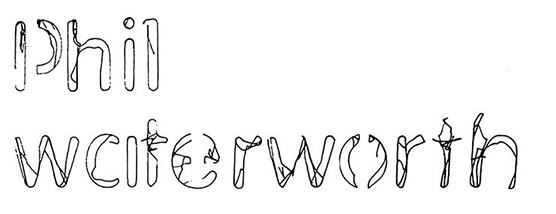ADAPTIVE
TECHNOLOGIES
by Phil Waterworth
These text pieces were created with adaptive technology software, using a program designed to assist those with a disability in acccesing word processing. As my hands become less able to complete word processing, my voice is used to issue commands to the program which then converts them to type. Each piece of writing takes the form of a list, a mode of writing that is perhaps the most utilitarian in its expression of tasks to be completed and of things to remember.
As with voice recognition software, the program works best with a clear speaking voice. But as computerised systems go it is not perfect. The software clearly struggled with my northen accent with its flat, deep vowels. The words the computer heard and translated into typed text, were either slightly altered or totally different, becoming what Hito Steyerl terms ‘digital debris’. Rather than throw out these anomalies from the system, I kept them and recorded their repetitions and faulty phrases.
These texts sound like I am involved in a physical tussle with computer software. The repetition of certain words and word combinations overlap with each other, creating abstract soundscapes.
I am also interested in the double bind that exists when I try to pronounce the names of theorists and artists in Reading List. The algorithms in the adaptive technology have to first understand my accent and also my mispronunciation of the names of continental thinkers.
